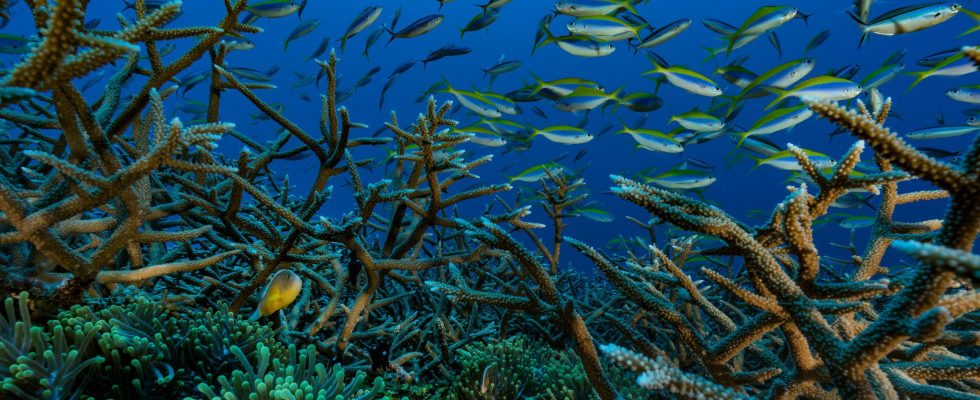Among 53 substances studied (UV filters, hydrocarbons, pesticides, metals) “half may present risks for coral reefs and contribute to their degradation”, concludes the Health Security Agency (ANSES), in a report published Monday September 18 . The study carried out overseas thus confirms the negative effect of certain chemical compounds on corals, in particular those contained in sun creams. The Agency also warns that, due to a lack of available data, “this number is very probably underestimated”.
ANSES was contacted in 2018 by the government, jointly with the French Biodiversity Office (OFB), to carry out an inventory. France is particularly interested in the issue because it is home to 10% of the world’s coral reefs with its overseas territories. The study unveiled Monday was based mainly on data available in Guadeloupe, Martinique, Reunion and Mayotte.
Limit rejections
In conclusion, ANSES recommends creating or strengthening the surveillance and monitoring of chemical substances, limiting the release of dangerous substances at source (in particular with regulatory bans on their marketing) and improving the networks of wastewater sanitation.
The experts are also focusing particularly on sun creams, while the expertise has “identified three substances as toxic to corals: oxybenzone, octinoxate and octocrylene”. The State recently received a request from ANSES to restrict the use of this latter substance. France, however, wants the matter to be managed on a “European scale”, particularly as part of the revision of the Reach chemicals regulation, a government source indicated at the beginning of July.
Ban on certain substances
In a statement, Christophe Béchu, Minister of Ecological Transition, said on Monday that he was “in favor of the revision of this regulation making it possible to take into account the study of toxicity on corals in the danger assessment of substances chemicals so that the impact on corals of a substance can be grounds for a ban.
In its report published Monday, ANSES also hopes that the assertions of environmental protection and respect for marine environments made by certain brands of sunscreen are “justified”. “The presence of one of the substances mentioned above seems incompatible with the possibility of benefiting from such claims,” considers the agency.
A point taken up by Christophe Béchu. “I asked my services to study the legal possibilities to prohibit the claims and logos, present on a certain number of solar products, touting their respect for the marine environment,” he said.
